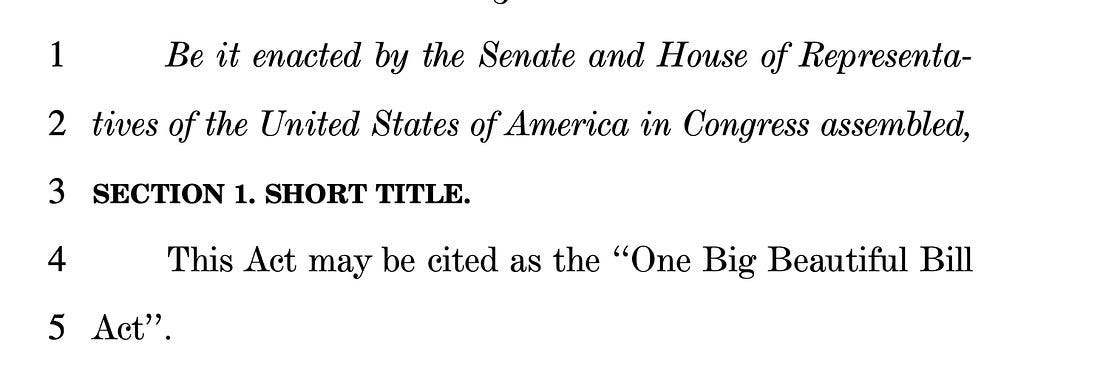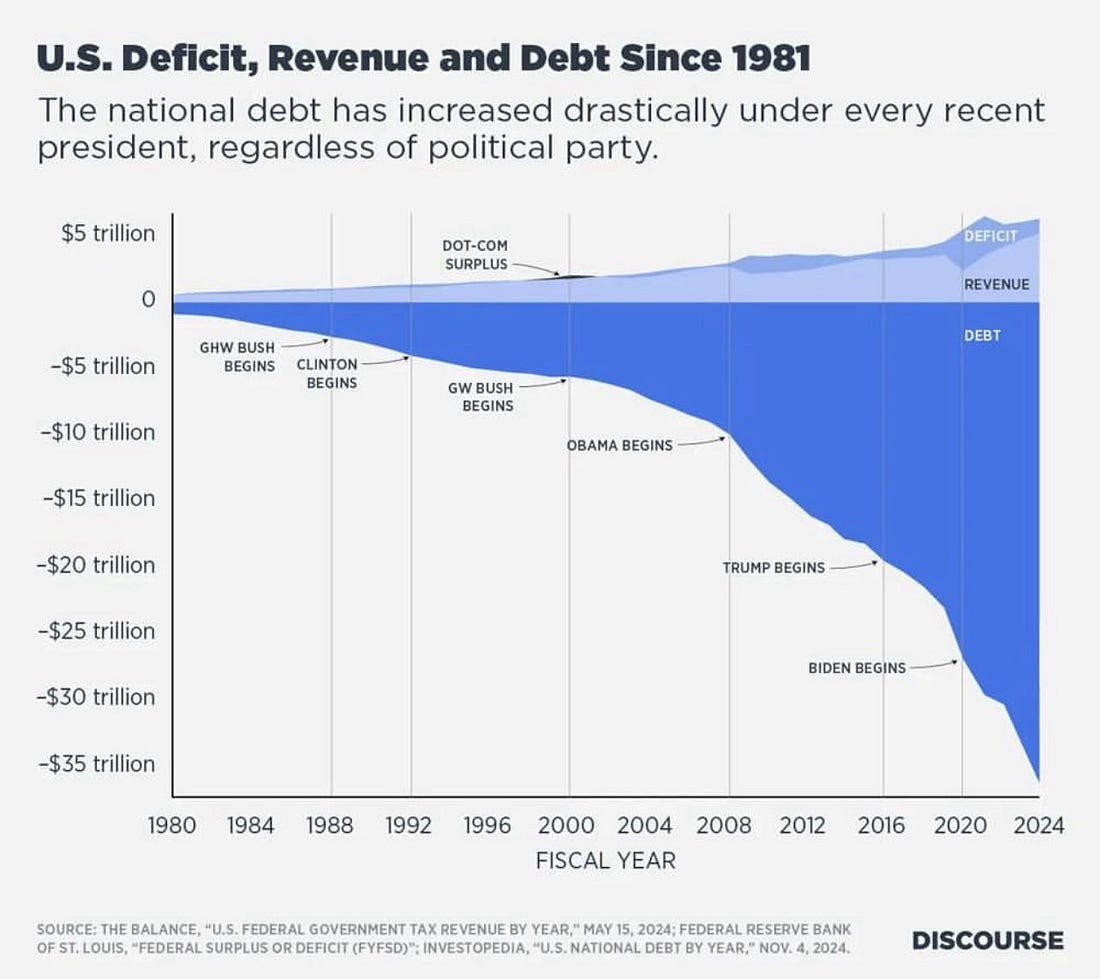Is Everything Farce? | How "Pride" Shifted from Vice to a Symbol of LGBTQ Empowerment | PCA Leader’s “Scandalizers” List Triggers Ethics Probe, Fraternal Rift
This One's Messy, So Pull on Your Muck Boots
Welcome to Second Drafts, where the news and commentary is cheap and you’re sure to get what you pay for. Sources and articles for this issue include:
The Square Inch: Is Everything Farce?
NPR Word of the Week: How “Pride” Shifted from Vice to a Symbol of LGBTQ Empowerment
WORLD Magazine: PCA Leader’s “Scandalizers” List Triggers Ethics Probe, Fraternal Rift
Don’t forget to rank the stories…and maybe leave a comment below as to why.
As always, thanks for reading Second Drafts,
Craig
PS: Happy June.
#1: Is Everything Farce?
I missed a deadline last Friday. It was a busier than normal week, but that’s no excuse (nor usually a problem); for whatever reason, I just didn’t feel like writing.
I’ve been in a funk struggling to explain or rationalize it, but Dr. Brian Mattson, in the intro to his own newsletter Wednesday, accurately summed up my acedia:
“Everything appears to be farce. What can I possibly say? Congress is trying to pass a bill that they literally named the “One Big Beautiful Bill.”
Is this a serious country? Are these serious people? Is it supposed to be cute? Funny? Given the fiscal situation in which the United States finds itself, it isn’t even remotely funny. The party that ostensibly cares more about fiscal restraint is going to pass a bill that adds, according to the Congressional Budget Office, another $3.8 Trillion to the deficit between 2026 and 2034. This is the chart you should print out and tape to your bathroom mirror, or keep in your wallet for a reminder of just how unserious our leadership class appears to be.”
Whether Republican or Democrat, conservative or progressive, it’s getting harder and harder to take our “leaders” seriously—certainly when political shenanigans we all knew were happening are finally now coming to light, but especially when current leaders cannot define foundational legal concepts like “habeas corpus” nor acknowledge obvious reality that men and women are biologically different.
It’s difficult to write seriously about unserious people, the majority of whom our unserious populace have elected. What are they thinking? What were we?
As Groucho Marx once said,
“Politics is the art of looking for trouble, finding it everywhere, diagnosing it incorrectly, and applying the wrong remedies.”
I know they’re going to do all that. I just wish they would do it more seriously.
#2: NPR Word of the Week: How “Pride” Shifted from Vice to a Symbol of LGBTQ Empowerment

In anticipation of June, kudos to NPR for at least saying the quiet part out loud:
“The word ‘pride’ was not always associated with colorful and lively festivities. Nor was it always a symbol for LGBTQ empowerment and strength.
The first known use of the word ‘pride’ dates back before the 12th century. In its early uses, pride referred to an ‘inordinate self-esteem’ and ‘an unreasonable conceit of superiority,’ according to Merriam-Webster.”
Perhaps they’re limiting their study of the use of the word to English (I can take you to at least a hundred different examples of the concept over the past 7,000 years), but the attempted etymological lesson continues with a very broad brush:
“In the 14th century, the use of the word began to shift toward something more positive, to refer to ‘a reasonable form of self-respect,’ according to Merriam-Webster.
Throughout history, the word ‘pride’ has taken on an array of meanings—ranging from a human emotion to a religious vice to a group of lions that live together. But a little over 55 years ago, the word took on a new meaning.”
Over the course of those 55 years, the LGBTQ movement’s marketing morphed from an acronym—“P.R.I.D.E.: Personal Rights In Defense and Education,” first used in California in 1966—to the word becoming the cry of the 1969 Stonewall Uprising. “Pride” then became the official one-word qualifier of June when, in 1999, President Bill Clinton declared it as Gay and Lesbian Pride Month. Nine years later, President Barack Obama adapted the designation to a more inclusive name, Lesbian, Gay, Bisexual and Transgender Pride Month. And President Joe Biden opened the gender acronym floodgates by adding the “I+” to “LGBTQ.”
“There was some debate on what the unifying slogan should be [for Stonewall]. Some organizers were in favor of ‘gay power.’ But the late organizer L. Craig Schoonmaker argued for ‘pride,’ he told The Allusionist in 2015.
‘There’s very little chance for people in the world to have power. People did not have power then; even now, we only have some,’ he said. ‘But anyone can have pride in themselves, and that would make them happier as people, and produce the movement likely to produce change.’”
As one who has studied ancient languages, I get that meanings of words change over time. But not all change is to be celebrated, particularly when it foists and forces positive messaging of sinful behavior on people—especially children—as British feminist and LGBTQ advocate Kathleen Stock laudably lamented:
“This annual festival of naked men and naked political manoeuvring is incredibly dispiriting to any lesbian or gay man who doesn’t believe in the underpinning values—if you can call them values at all. Some of my friends have become positively averse to the sight of the rainbow flag, and shudder whenever they see one. In Brighton, given the ubiquity of rainbows—from buses to shopfronts to lighting displays and beyond—this means you shudder on average about four times an hour. And not in a good way. Rather than feeling proud as robotically instructed, many feel ashamed of what’s being done in their name.”
To be sure, there is a vast difference between those confused by and struggling with (often unwanted) feelings of same-sex attraction and activists trying to indoctrinate children and teenagers to theirs. Unfortunately, however, with the hijacking of the month of June, “pride” still carries a 12th century “inordinate self-esteem” and “unreasonable conceit of superiority” despite the guise of trying to shift to and appropriate a more 14th century “reasonable form of self-respect.”
I’ve written plenty on what this means (or should) for Christians—in a phrase, “love the people, lose the movement.” At a minimum, it shouldn’t mean linking arms in organizational advocacy, virtue-signaling as an unquestioning “ally”; true friendship of the biblical kind doesn’t blindly affirm and agree with what is harmful.
As Proverbs 11:2 says,
“When pride comes, then comes disgrace,
but with the humble is wisdom.”
May June be a month of humility rather than pride for any struggling with same-sex attraction, as well as for all seeking to help them in and through their struggle.
#3: PCA Leader’s “Scandalizers” List Triggers Ethics Probe, Fraternal Rift
I didn’t want to write this one, but in good conscience (as well as in hopes of helping, which is always my problem), I felt compelled. This may seem an “inside baseball” post for those not part of or familiar with my denomination, the Presbyterian Church in America, but there’s plenty that transcends in terms of mistakes to avoid and lessons to learn that make it worth writing and reading.
Ten days ago, I listened to a Gospel Coalition podcast interview with Dr. Bryan Chapell, long-time pastor and former president for 18 years of Covenant Seminary where I was a student from 2005-2010. A fellow rural Illinois boy, Chapell has been a respected leader and preacher whose ministry has crossed denominational lines through his multiple books on homiletics. Upon retiring from Covenant as President Emeritus, Chapell went back into the pastorate to serve as senior pastor at Grace Presbyterian Church in Peoria for seven years before agreeing to serve as Stated Clerk of our denomination (which is as close as Presbyterians get to calling someone the PCA’s president).
Toward the end of the aforementioned podcast focused on Chapell’s just-released book, The Multigenerational Church Crisis: Why Why We Don’t Understand Each Other and How to Unite in Mission, he made a mistake—a big one—that seemed as out of character as it was out of left field. According to WORLD Magazine,
“[Interviewer] Collin Hansen brought up the subject of men who ‘spend so much time performing for the applause of their peers by trying to scandalize others.’ He asked Chapell what the church could do to discourage such behavior. That was when Chapell held up the list.”
“The list” (pictured above) was a yellow sticky note filled with scribbled names, which Chapell conveniently pulled from his desk somewhere. Why he had such a list was never explained, but who the names were (at least in Chapell’s mind) was.
“‘Those are the names of the scandalizers, the people who have invested hours every day attacking others for their supposed lack of faithfulness, for their compromise…whose identity comes from scandalizing others,’ he said. ‘And every name on that list has either left his family, left the faith, or taken his life—every name on that list.’”
Existence of the list and names aside, Chapell’s point was uncharacteristically ham-handed, with claims of outcomes of the scandalizers’ lives far from true.
“While the list was only on camera briefly, viewers were able to pause the video, take screenshots, and read most of the names on it. Since the May 20 release of that episode of the podcast, Chapell’s ‘scandalizers list’ has gone viral on social media, triggered multiple formal ethics complaints against the denomination’s stated clerk, and drawn official letters of concern from sister Presbyterian bodies—an unprecedented rupture in PCA interchurch relations.”
And yet, as WORLD reported,
“Not all of those who appear on the list are offended. Wes White, an assistant pastor at Grace Presbyterian Church in Peoria, Ill., wrote in a recent blog post that he deserves to be on Chapell’s list because of his intense involvement in church politics over a decade ago. ‘Being on that list doesn’t bother me,’ White wrote. ‘At one time, I was exactly the kind of person it warns about. But I’m grateful those days are behind me.’ White works at the church where Chapell served before taking the stated clerk position.”
Though I’ve never met him nor am aware of what he did, I appreciate White’s gracious perspective as it acknowledges the point I think Chapell was trying to make—namely, that scandalizing fellow believers does not lead to good things. Ironically, in showing the note, Chapell did exactly what he was condemning. The video capture spread and word got around. TGC took down the podcast and replaced it with an initial apology from Chapell. Then, just yesterday in ByFaith, Chapell released this statement, ending with his intent to resign as Stated Clerk:
“On a recent podcast I responded to a question by referencing a small piece of paper containing personal notes. I wrongly said that every name on the paper represented social media ‘scandalizers’ who later experienced personal consequences from their commentary habits. An enlarged screenshot of the note has since circulated, indicating that the podcast response I gave was not appropriate or true.
As a consequence, I brought unwarranted disrepute upon persons identified in the screenshot. For this wrongdoing I repent to my Lord and I apologize to the individuals, their families, and the church I serve. I have begun, and will continue, personally to ask forgiveness from those I harmed. I also confess the seriousness of these errors and sin.
Therefore, at the upcoming called meeting of the Administrative Committee, I will ask for approval of my retirement as Stated Clerk. I give thanks for my Savior whose provision for sinners such as I is according to his grace rather than my deserving.’”
As unfortunate as all this, stepping down is the right move—for the good of the denomination, as well for Chapell’s conscience and witness. And, while the timing is not great with the PCA’s General Assembly in Chattanooga in less than a month, Chapell’s humility in handling the situation is admirable and hopefully takes some angst off the table and out of the hands of any clutching it (for better and for worse, because Reformed folk are (mostly) settled on the big stuff—dual nature of Christ, authority of Scripture, etc.—majoring on minors sometimes becomes a pastime).
I pray Dr. Chapell makes amends and receives forgiveness from those on “the list” and that God would redeem all this as He seems to have with Wes White. And I pray those not on the list will be kind to him—a leader I’ve known as a faithful but flawed man, like me, in need of the Gospel he’s given his life to preaching.
Lord, have mercy on your Church.
“By doubting we come to inquiry, and by inquiry we perceive the truth.”
Peter Abelard








Those I know and love who struggle with same sex attraction or gender confusion also struggle deeply with self loathing. We must not celebrate pride in sin, but we also must not seek to push farther down those who are desperately in need of our Father’s love—even and especially our brothers and sisters in the faith who struggle with this particular area of sin. When the church has so often and loudly processed hatred and disgust of you and your ilk, how can you be confident in your identity as the beloved of God? But that is what these are, even as you and I are — Christlike humility is, must be, rooted in a deep confidence in the Father’s love for me, for you, for each of our brothers and sisters whatever their particular area of temptation and sin. This month, may those who struggle with same sex attraction or gender confusion come to know, or to know more deeply, the overwhelming love of our truly Good Father!
That "Reformed people" graphic was on point.